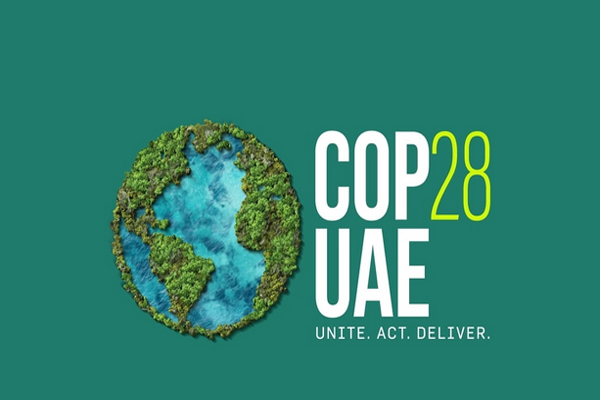
Catherine Osborn, FP
COP28, the United Nations climate conference, just kicked off in Dubai, and several Latin American countries have arrived with a renewed swagger.
At last year’s conference, Brazil’s Luiz Inácio Lula da Silva attended days after winning a presidential election. He vowed to restore Brazil’s global reputation for climate stewardship by reducing the Amazon rainforest destruction that soared under his predecessor, Jair Bolsonaro. Now, Lula has the numbers to prove he kept his word: In Brazil, Amazon deforestation between August 2022 and July 2023 was 22.3 percent lower than the year prior. Brazil isn’t alone in this success: Destruction of the forest also fell during the year to date across Bolivia, Colombia, and Peru, watchdog group Amazon Conservation told Reuters this week.
Lula and Colombian President Gustavo Petro—who often uses the U.N. platform to tout his environmental ideals—are both in attendance, as is Barbados Prime Minister Mia Mottley, whose plans for funneling more climate finance to low-income countries have garnered worldwide praise. Meanwhile, Cuba was elected leader of the G-77 group of developing nations, which often act together as a negotiating bloc in the COP forum.
For many in Latin America and the Caribbean, however, COP28 won’t necessarily be a victory lap. Argentina’s president-elect, Javier Milei, has called climate change a “socialist lie” and reportedly sent no one from his presidential transition team to the conference. Regional giant Mexico is one of many countries in the area that have yet to announce a net-zero goal.
Even Brazil’s record is more complicated than Lula would like to admit. The country is in the midst of a major oil drilling expansion and on Thursday announced it was considering accepting an invitation to join the oil exporters bloc OPEC+.
At this year’s conference, Lula hopes to position himself as a climate leader—despite his country’s oil ambitions—by improving rainforest protection and boosting Brazil’s renewable energy generation.
“If Saudi Arabia is the world’s most important producer of oil and gas, in 10 years Brazil will be known as the Saudi Arabia of green energy,” Lula said on a visit to Riyadh on Wednesday.
However, it will be difficult for Brazil to achieve that on its own. Latin American countries’ high interest rates and lack of accessible finance are holding them back from receiving the investments needed to reach their renewable energy goals, the International Energy Agency (IEA) wrote in a November report.
Latin America is often touted as a potential green energy powerhouse because of its abundant sunshine and wind resources. But the key word is “potential.” Due to high interest rates, the IEA calculated that financing costs make up almost 60 percent of the cost of solar plants that reached final investment decisions in Brazil in 2021, compared to 30 percent in China and 25 percent in Europe. Even in Chile, a financially prudent regional leader in solar energy, the IEA said that, based on current policies, the country will only be able to install around half of the amount of wind and solar capacity it has pledged to by 2050.
If Latin American countries want to speed up the installation of renewables, they do have some options at their disposal. One promising step would be to switch up their subsidy policies. Brazil, for instance, gave more subsidies to fossil fuel companies and consumers in 2021 than the fossil fuel sector paid the government in royalties, according to the Institute of Socioeconomic Studies. Another option is to streamline permitting for wind and solar technologies. Permitting delays have slowed their rollout in Colombia, industry sources told me.
But at the end of the day, fulfilling the region’s green energy potential—or even just meeting countries’ existing targets—will take tens of billions of dollars of additional investment by 2030, the IEA calculated. That cannot be met by national budgets alone; it requires action from wealthy countries, private investors, and powerful financial brokers such as the World Bank and International Monetary Fund. If COP28 can amplify and simplify the investment process, it will be important progress.
Ahead of the conference, Latin American countries have contributed to debates on green finance for the developing world. Mottley’s climate finance plan, the Bridgetown Initiative, has been publicly praised by COP28 president Sultan Ahmed Al Jaber. In Dubai, Chile and Germany are launching a club of developed and developing countries to cooperate on funding decarbonization. And Brazilian and Colombian officials will participate in a side event on debt and climate.
As Latin America’s still unfulfilled green energy ambition shows, the success of Dubai’s COP will be defined not only by climate targets, but by securing the money to pay for them.
Catherine Osborne, is the writer of Foreign Policy’s weekly Latin America Brief.
foreignpolicy.com 12 01 2023












